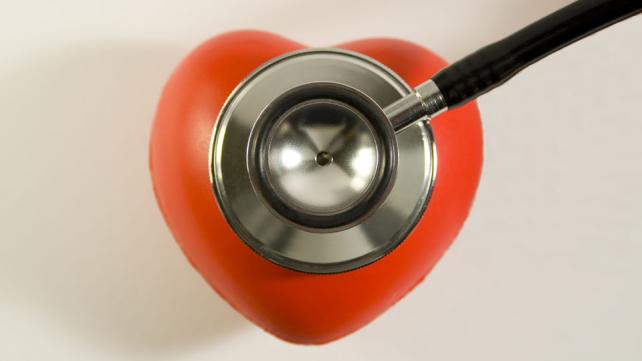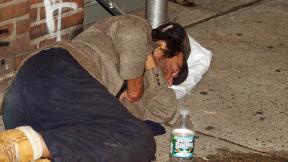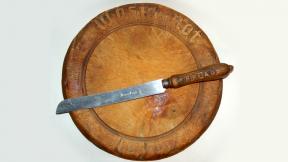
Every evening, my mother used to send me with prepared meals to our nearby Masjid as I was growing up in a small town in Pakistan. I always thought our Imam's growth in probably unintended directions was a result of all this food he had to consume which almost everyone in our neighborhood was sending to the Masjid. Later on, when I was allowed to stay out in the evenings, I learned that after every sunset prayer, several volunteers set up food and drinks. Tens of people would come and sit across each other to silently to eat. These were probably the same people I saw sleeping in the Masjid after the last prayer of the day.
Most Masjids in the Muslim world are open 24 hours a day, seven days of week. They are often the first place the hungry, homeless or poor travelers turn to for help in the Muslim world.
However, the Masjid in North America has not developed this tradition. Most mosques are open only during prayer times. With the exception of one Masjid in Atlanta that proudly writes "door open 24/7 days a week," most doors are closed to the hungry and the homeless. About ten years ago I remember failing to persuade a Masjid which respected me as an Imam to allow the usage of its excellent cooking facilities to prepare meals for a proposed mobile soup kitchen (no, it was not one of those "immigrant Masjids". I did not bother to ask them).
The Prophet's Masjid in Madinah was a center of not just prayers, but of all the social and human services being offered at that time for the whole society, Allah's peace and blessings be upon the Prophet. Abu Huraira, who recorded the largest body of the sayings of the Prophet, was actually a homeless and poor Muslim who was sheltered on the Suffa of the Prophet's Masjid, may Allah be pleased with him. Hundreds were sheltered and fed in the Masjid before they were able to take care of themselves in the city. The Prophet's treasury would go empty most of the time because of the priority to take care of people, while the structure of the Masjid was so poor that sometimes the call to prayer would be done with the announcement that people should pray at home because the floor of the Masjid had turned into mud.
Masjids in the USA are better in many aspects than the Masjids in the cities of the old country, but not when it comes to social services. Although 84 percent of Masjids in America provide cash assistance to the needy there are usually no formal structures in place to go beyond the this charity. This can and must be changed. The Masjid is the focus of any Muslim community and in order for it to be effective, it must be more than a prayer place that is closed to the community "after hours."
Since four-fifths of the Masjids are located in a metropolitan area, they must be aware of the extraordinary efforts made by other faith groups to offer social services to the metro communities beyond their own congregation. It is the call of Islam to serve all in need, not just Muslims.
Funding may not be the problem since only 15 percent of Masjids report financial difficulties, while half feel their financial health is good . Social services are such community-oriented programs that it is Masjids, not the national organizations, that may become the only vehicle to help Muslim Americans advance in this long overdue area of development. Although there are many smaller Masjids, in each major city in the US there are four or five of them whose annual budget may be higher than that of any national Muslim organization. The problem, therefore, is not financial. Rather, it is understanding the importance of social services and assigning some dedicated workers/leaders to learn the necessary skills of this field for the community.
Here are eight suggestions for Masjids to provide the necessary social services to the community around them. If you are a Masjid leader, these ideas are for you. If you attend a Masjid, you can initiate discussion in your mosque to move forward in this area. Bear in mind that these ideas are for larger Masjids that can undertake such initiatives on their own. Alternatively, they can partner with smaller Masjids and assist them in enhancing their social services programs.
Form two committees:
The first major suggestion I have is to form two committees:
- family services committee (marital conflict, spousal abuse, etc.) and
- human services committee (poverty, homelessness, etc.).
Once the groundwork is done, have a Friday sermon dedicated to the importance of social services in which the Imam asks people to volunteer for the committees. Before a budget and other resources are assigned to the committee, let it study and come up with a plan of what that Masjid itself can do; things they can do in collaboration with other Masjids in the area; and things they can do together with other faith groups.
The formation of two committees instead of one will also rescue the cause of the hungry and the poor (human services committee) which we have often seen being lost to the cause of martial counseling, an area in which about 74 percent of Masjids report being informally involved in.
The formation of the committees will also help formalize what many Masjids may already be doing in an unstructured way, thereby making them much more effective and useful to the community.
No Muslim institution can, Islamically, remain isolated, living like an island oblivious to the society around it. Thank God for faith groups who supported Muslims in the aftermath of 9/11, as a result of which many Masjids came out of their isolation. Many have organized open houses etc. Some Masjids had been involved in interfaith dialog before the tragedy. Now is the time to learn how other faith groups offer social services to society.
There is much the Muslim community can learn from the Catholic community, for instance, which has established many solid social service institutions. These have successfully met the needs of not just Catholics, but Americans of all religious backgrounds who are hungry, indigent, facing family or emotional problems, as well as other issues.
These partnerships will bring Muslims out of their isolation in North America and be a method of bridge-building. It will also allow Muslims to gradually develop a domestic agenda that may eventually support their justified concerns regarding international issues of justice. It might also help people of other faiths to develop a feel for Muslim issues.
More Muslim marriages are dissolving or in trouble than we as a community would like to admit. Couples need proper counseling and help. Many husbands and wives often turn to the Imam or the community leader affiliated with a Masjid to help solve their problems. Given the burden of responsibilities these individuals already have on them, and their lack of training in counseling, this is unfair and ineffective. However, many Muslims believe that they are more appropriate than non-Muslim professionals in this field. For instance, one Muslim facing marriage problems went to a non-Muslim marriage counselor who advised him to "date other people" to better evaluate his feelings for his wife.
This is, of course, not a reflection on all marriage counselors in America. However, it does indicate the crying need for marital counseling and conflict resolution that is in line with Islamic values.
Since 75 percent of Masjids do report providing some form of family counseling, Masjids must invest in providing some basic training to Imams and leaders and sponsor other Muslims to offer their services at the mosque for the community. Offering Islamic marital conflict resolution in a compassionate, private and professional manner will Insha Allah, save not just couples and families, but also the future of the Muslim community in America.
There are about two million people currently in prison in the US. About 25 percent of the world's prison population is in this country. In 2001, the rate of incarceration of 690 inmates per 100,000 population is the highest reported one in the world. Forty-six percent of prison inmates in 1999 were African-Americans. Nearly one in seven (13.4 percent) black males aged 25 to 29 were in prison.
Every year about 600,000 people are released from prison. Almost two-thirds of all released prisoners are likely to be rearrested within three years. The total number of people who are somehow controlled through this system is now 6.5 million. They are either incarcerated, on probation or on parole.
There is an acute shortage of vocational, educational and substance abuse programs in and outside the prison system. Only six percent of the prison system's budget goes towards these educational programs. Hundreds and thousands of prisoners are being released each year without any form of community correctional supervision, although studies show that community supervision combined with some form of rehabilitative program following a prisoner’s release helps reduce the chances of these individuals going back to prison.
This is where Masjids can contribute in an extraordinary way. I don't know on what basis, but it is said that about 30 percent of the prison population is Muslim. Most of them became Muslim while there. Of course we know that Malcom X (Malik Shabazz) and H. Rap Brown (Imam Jamil al-Amin) came to Islam through the prison system. Therefore, the Masjids' interest in this area is not only of benefit to humanity, but to the Muslim community as well.
Muslims have already done half of the work. There are Muslim chaplains in the prison system, Friday prayers there, a few correspondence programs, etc. The prison community has become a place where Muslim inmates find not only knowledge about Islam, but brotherhood as well, which is essential for individual security in the prison system.
However, once they leave prison, these Muslims usually lose this support structure and are often left to fend for themselves. They still need help securing a job, finding a place to live, etc. There are hardly any Muslim halfway houses in America, which is why they end up turning to non-Muslim institutions which offer these services. As a result, a number of them leave Islam along the way. Prof. Ilyas Ba Yunus finds that a majority of those 70 percent of new Muslims who leave Islam in a few years are from this category who do not find the Muslim brotherhood in society which they had while in prison.
Can your Masjid work with other ones to establish a halfway house for former inmates, where they can be assisted in transition to a real job, some training and emotional support? If these halfway houses are open for people of all faiths, it can even get support from different government agencies. Some people are actually doing it for business. If your Masjid cannot do it and you do not have other Masjids in your area to coordinate the work with them, maybe you can still consider donating some of your Zakat to a halfway house which is working on helping people stand on their feet.
Most of the priority categories recommended by the Quran apply to this category of people, whether it is Fuqara, Ibn Assabeel, Muallifat al qoloob, or helping prisoners and freeing the people.
The FBI estimates a woman is battered in the United States every 15 seconds. Sixty percent of battered women are beaten while pregnant, often on the stomach. Each year about one million women become victims of violence at the hands of an intimate—a husband, ex-husband, boyfriend, or ex-boyfriend. One quarter of all U.S. households with children are headed by women alone.
Domestic violence has plagued Muslim homes for years. Only recently have some efforts been made by Imams and community leaders to address this problem. To our knowledge there is no shelter being run for Muslim women in America. In Chicago, a shelter run by Hindus has more Muslim women clients than non-Muslim. According to research by Prof. Ilyas Ba Yunus, the second largest group which he noted among the 70 percent of new Muslims who leave Islam in a few years belong to those leaving after a marital problem with a Muslim spouse.
The need for battered women's shelters remains high because most women and children who are victims of domestic violence usually have no place to go to escape danger. While some may find supportive family and friends to stay with while domestic violence in their home is being addressed, many, many others have nowhere to turn to. This is why they often end up going to non-Muslim women's shelters. While these offer some respite from the violence, they also pose challenges for Muslim families.
It is imperative that Masjids establish women's shelters. In fact, many Muslim women have often turned to the Masjid for help in this regard, only to be turned away or told by the Imam to "be patient" and tolerate the violence endangering them and their children. The Masjid can offer shelter and safety. In addition, it is likely that the husband perpetrating the abuse will accept advice and intervention from fellow Muslims over non-Muslim social workers and agencies. This makes the Masjid an ideal institution in which or through which to establish a battered women's shelter.
A shelter can be based in a rented house with a few bedrooms. Your Masjid can start one on its own or have a few Masjids start one together. You can sponsor internships for Muslim women in women's shelters to gain an understanding before you start one on your own.
Often times, the reason new Muslims leave Islam is due to a lack of support from the Muslim community in the face of the challenges they face after conversion.
Masjids can help by establishing support groups for new Muslims. These would not only teach new Muslims the basics of the faith, but they would also help them deal with issues like non-Muslim relatives, discrimination and other problems converts face. In addition, they would become like their "family", since many converts must deal with parents and siblings who are hostile to Islam or outright reject them for becoming Muslims. Without such a support system in place, it is highly likely converts will slip back and leave Islam.
The best people to start a new Muslim support group are some "old" new Muslims themselves since they have gone through a transition and learned about the challenges from a unique perspective. Masjids should allocate a budget for this purpose.
Offering free medical care to Muslims and non-Muslims in the local community is an excellent way for Masjids to fulfill the obligation of social service. Given that medical care is not only expensive, but sadly, that a number of Americans don't even have health insurance to cover the costs of treatment or tests, a free medical clinic is an ideal social service project.
The Masjid can organize Muslim doctors and other health professionals to use their locale as a place to hold a free clinic on a frequent or permanent basis. The free clinic will require not only plenty of planning, but also the funds for liability insurance, equipment, publicity, etc. However, there is help available. Masjids can contact other organizations, Muslim or non-Muslim, which have already such a system in place to seek advice on funding and establishing this project.
- Partner with other faith groups
- Train Imams and others in family counseling
- Start or support halfway houses
- Battered women’s shelter
- New Muslim support group
- How to open and sustain a free clinic
- Deposit boxes for food and old clothing
Although old clothing can be difficult to process, clothing drives are something people love to participate in. So get them involved. Masjids need to place deposit boxes where clean and usable clothing can be collected. Most churches, for example, sell these clothes and use the cash for other priorities. These boxes can also become a regular reminder of our obligation to the poor.
Conclusion:
Organized social services are a new territory for Muslims in America, although we have a strong history in this field. Whether you are a volunteer in a Masjid or a leader of your Islamic center, if you do take steps in this direction, you are a pioneer. Please document each step and each experience in this direction and share them with other Muslims across America. You can send it for publication to any of the Muslim newspapers and magazines. You can also send it to us for web publishing. May Allah be with you.








Comments
An excellent article addressing all the requirements of an islamic society. If we are not going to take care of ourselves, who will? This is an excellent article to help us strive towards implementing care towards the needy in our community. i wish every mosque would apply this!
Location
All Praise is due to Allah for His infinite wisdom!! Just two days before being led to this web page, Allah(SWT) led me to a great organization called Muslim Social Services in Maryland who are doing great and wonderful things for Muslims right here in my community. Insha' Allah, this article will passed around and will encourage others to get involved. -Great Article!!!!!!
Location
Excellent article. it will definitely help our Masjid--Masjid Alquddus in NEWARK, NJ in developing such programsplease keep up the good job
Location
Excellent!I would say, these are our main issues, bringing them into discussion is great work, eventually Insha Allah; these issues will be resolved one by one. We need to support each other and talk about these issues at every forum.
Location
Assalam AlikumAfter reading this article, my inner drive to continue my work for starting a food pantry and health clinic in my Jamaat and Community is confirmed. Can you let me know which other Florida Jamaat/Community has as successful program I can contact for information?Wasalam,Sis.Safiya
Location
As'Salaamu Alaikum! Awsome article. Community involvement is essential to the growth and understanding of Islam in this country.
Location
Assalamualaikum-A well-written and -researched article. Just for general information, there are organizations in Northern California that offer family/couple counselling and shelter to battered women, which I think is a wonderful and necessary service. The American Muslim community as a whole needs to be more organized and active in supporting the needs of our women, so instead of being defensive when accused of mistreatment of women, we can be examples of the best care for women in any existing community.
Location
These are really good suggestions. I well convey this to the director of our masjid. Inshallah we will try to use some of these ideas.
Location
Thank you for these excellent suggestions. I have recently been elected on the executive council of a local area Masjid (a first in the Masjid's policies since I am a woman) and this will help me tremendously. Allah Bless you & your Organization - ameen.
Location
Pages
Add new comment